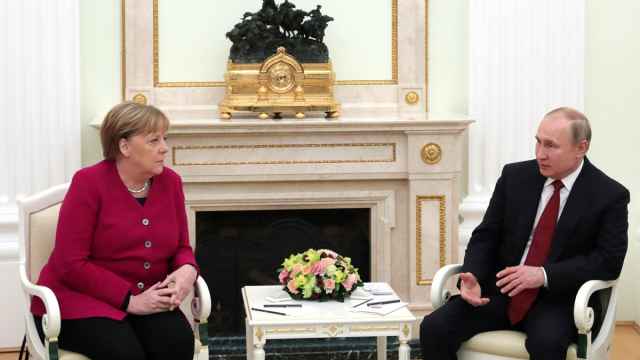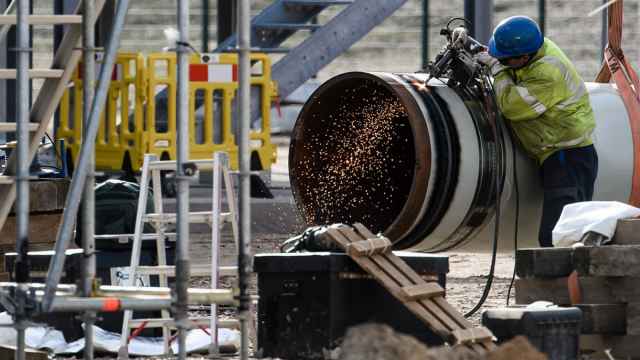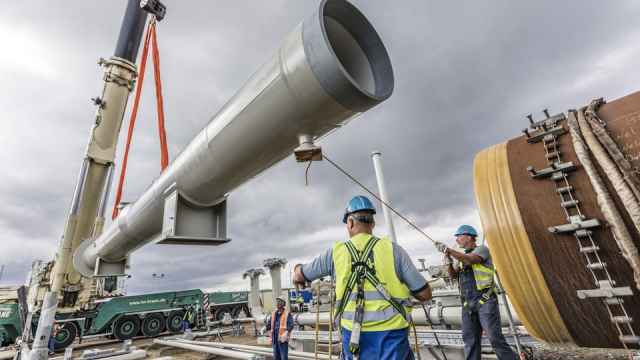The United States is asking Germany and the EU to halt construction of the Nord Stream 2 gas pipeline linking Russia to Europe, which Washington sees as a "political tool" of the Kremlin, a top envoy said in a German newspaper interview on Saturday.
"Now is the time for Germany and the EU to impose a moratorium on the construction of the pipeline," the U.S. acting ambassador to Germany, Robin Quinville, told business daily Handelsblatt.
That would send a strong signal to Russia that Europe was not willing to accept "its ongoing malicious behavior," the diplomat said.
"The pipeline is not only an economic project but also a political tool that the Kremlin is using to bypass Ukraine and divide Europe."
Nord Stream 2 is a 10 billion euro ($11 billion) pipeline near completion beneath the Baltic Sea, set to double Russian natural gas shipments to Germany, Europe's largest economy.
But it has long been in the crosshairs of the United States, which has criticized European countries for their reliance on energy from Russia.
Work on the pipeline has been suspended for nearly a year in the face of U.S. sanctions, but construction is set to resume this weekend.
As well as Russian giant Gazprom, which has a majority stake, the international consortium involved in the Nord Stream 2 project includes huge European players such as Germany's Wintershall and Uniper groups, the Dutch-British giant Shell, France's Engie and Austria's OMV.
Poland, Ukraine and the Baltic states are also fiercely opposed to the pipeline, fearing it will increase Europe's reliance on Russian energy supplies, which Moscow could then use to exert political pressure.
A Message from The Moscow Times:
Dear readers,
We are facing unprecedented challenges. Russia's Prosecutor General's Office has designated The Moscow Times as an "undesirable" organization, criminalizing our work and putting our staff at risk of prosecution. This follows our earlier unjust labeling as a "foreign agent."
These actions are direct attempts to silence independent journalism in Russia. The authorities claim our work "discredits the decisions of the Russian leadership." We see things differently: we strive to provide accurate, unbiased reporting on Russia.
We, the journalists of The Moscow Times, refuse to be silenced. But to continue our work, we need your help.
Your support, no matter how small, makes a world of difference. If you can, please support us monthly starting from just $2. It's quick to set up, and every contribution makes a significant impact.
By supporting The Moscow Times, you're defending open, independent journalism in the face of repression. Thank you for standing with us.
Remind me later.






